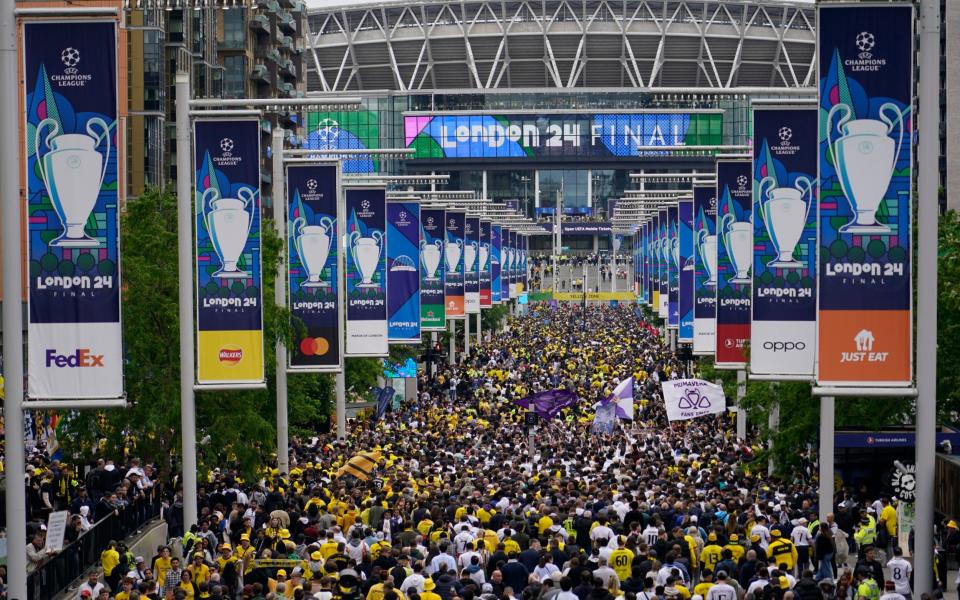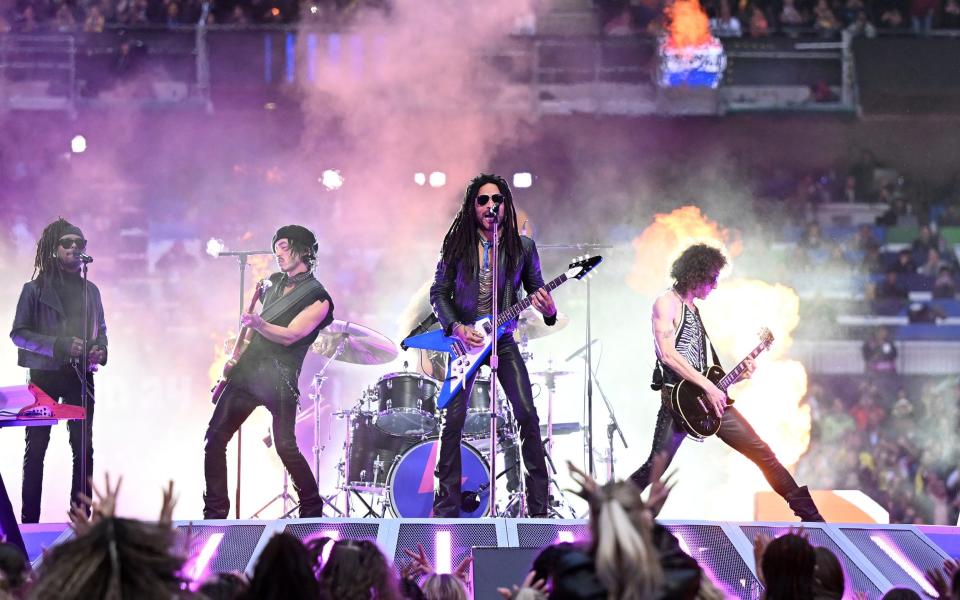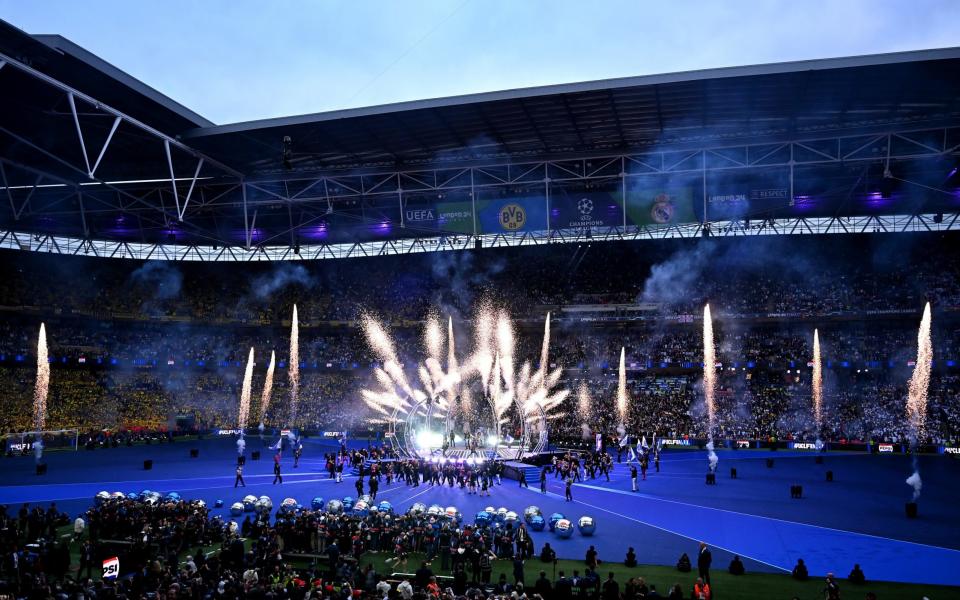
It is 4pm at the foot of the steps at Wembley Park tube station where Spanish and German fans have their first taste of British policing. Officers flank a slow flow of yellow and white shirts, visitors ambling towards Wembley with hope in their hearts and cans of lager in their hands.
Not so fast.
“Welcome to Wembley Park station,” says a steward in orange high-vis into her megaphone. “This is an alcohol-free zone. If you’re in possession of anything it must be disposed of in the bin at the bottom of the stairs.” A father and son in Dortmund shirts are intercepted for a Heineken transgression and told not to even finish their opened cans but surrender them to the custody of a green metal wheelie. The son has four more in a plastic bag and is told that’s fine, so long as they stay closed and he doesn’t drink them. Good luck getting them into the stadium, mein Freund.


This booze ban is the price innocent drinkers must pay for the disgrace of July 2021, when England supporters proved once again why we are not allowed nice things. The Euro 2020 final was marred by stormed turnstiles, blocked views for wheelchair users and widespread appalling behaviour when a good deal of the world was watching. Most here for the Champions League final were wise enough to pre-load elsewhere. Those unaware of the restrictions did not appear annoyed or surprised at being told about them and police seemed more worried about ticket touting.
There is little to fault in the management of the crowd before the game. There is one slightly uncomfortable bottleneck midway between tube and arch but it is the Primavera Blanca Real fan group holding an impromptu sermon rather than any failure of infrastructure.
In his programme notes Aleksander Čeferin calls Wembley “the cradle of football”, which feels both a stretch and unnecessary. This is the language marketers believe plays well with football fans. In fact most resist such sentimentality, because it implies that the venue is more important than your team’s result at it. “Hi Robbie, first time caller, heartbreaking to lose the Champions League final of course and we’ll probably never reach it again but at least we had a great day out at the Home Of Football, Connected by EE.”
Nevertheless you do see the odd visitor excited by their first sight of the arch. There is that meaningful nudge familiar to anyone who has pointed out a stadium to their child from a train. A gesture towards it and a word said with mild reverence: “Wembley”.
Inside you can see why Uefa like it. It is grand but featureless, blank enough to become whatever you want for a night. Before kick-off what Uefa decides we want is a performance from Lenny Kravitz. He vamps in front of some fire-breathing machines and four Pepsi logos for a crowd of hired dancers. This interrupts what had been an unusually soulful build-up, Dortmund’s fans with a show of united noise and colour that has no equal in English football. Was this improved by a 60-year-old who owns the world’s largest scarf singing “I wish that I could fly / into the sky / so very high / just like a dragonfly”?




Clearly there are still problems at Wembley. There were reports on Sunday about arrests for attempts to force entry and five pitch invaders in the opening minute does not suggest a flawless security operation. Yet for its faults there are no tales of tear gas or miserable waterless two-hour bus journeys, as was the case in Paris and Istanbul respectively for the past two finals.
Most fans’ worst memory, as ever with Wembley, will be how difficult it was to leave. The mood is tired and crabby in the phased kettling which takes you away from the stadium and when you finally make it to the tube any lingering vibe has been drained. Real won, but everyone is a loser in a 40-minute queue for the Jubilee Line.
Again, you can see why Uefa like this. All of your happy memories about the final are wrapped up in what happened inside the stadium, the environment which can be controlled and scheduled to the second. No surprises, much like the result.
First appeared on sports.yahoo.com
